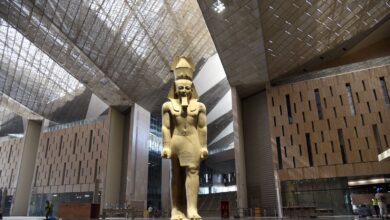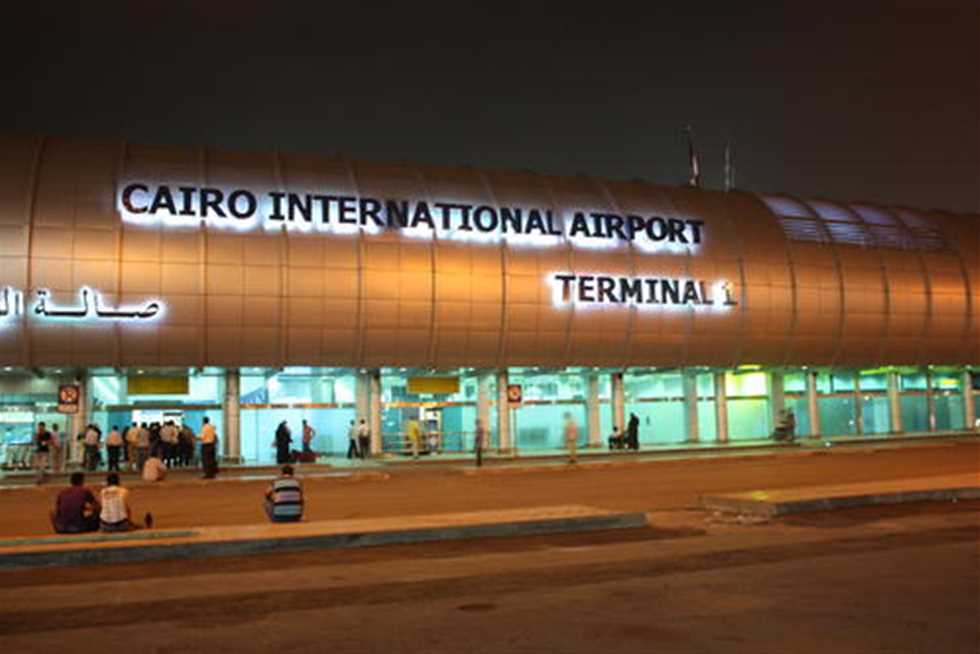The Dokki Misdemeanors Court issued its verdict today acquitting Prime Minister Hesham Qandil from liability and impeachment in light of a lawsuit filed by workers at the Tanta Flax and Oils Company, accusing him of failing to uphold an administrative court ruling issued in September 2011 — ruling that the privatized company should be returned to the public sector.
A final judicial ruling on the company's legal status is due to be issued on 15 April.
Nearly one and half years ago, the Administrative Court issued a historic verdict annulling the privatization contract of the Tanta Flax and Oils Company — finding that the company had been sold off to a Saudi investor for far less than its true market value.
“I feel let-down by today’s verdict," said Tanta Flax worker Gamal Othman. “The court claimed that Qandil is not responsible for the failure of incorporating our company back into the public sector.”
Othman went on to say, “If the prime minister is not to blame and is not responsible for this mess, then who is? Everybody is washing their hands of responsibility. Authorities previously told us that the Ministry of Investment is not responsible, nor is the Governorate of Gharbiya, nor is the Council of Ministers or the prime minister. The court should’ve at least told us who is responsible. Who should we turn to?”
Othman added, “All of us workers were disappointed by today’s verdict.”
Sacked unionist Hesham al-Oql said he is "not very concerned with the court's verdict on Qandil," since the authorities would not have enforced a verdict against figures of the ruling regime, even if the court had ruled in favor of the workers.
A former employee of Tanta Flax, Oql went on to say, “Today’s verdict is politicized and is not surprising.” He added that he pinning his hopes on the other verdict scheduled for April 15 — regarding the rightful ownership of the company, and a final decision on the company's privatization contract.
"Given the previous court rulings and legal findings, issued in the favor of companies being returned to the public sector, I trust that a final verdict will help us get our company back in order. And hopefully will help us get our jobs back too," he said.
Along with the Tanta Flax Company, the Administrative Court had also ruled for the nullification of the privatization contracts for the Shebin El Kom Spinning and Weaving Company and the Nasr Company for Steam Boilers — on 21 September 2011. On 13 September 2012 the same court annulled the privatization contract of the CEMEX Assiut Cement Company.
On 17 December 2011 the Administrative Court ordered the nullification of the privatization contract for the Nile Cotton Ginning Company — a massive group of factories in a host of cities stretching along the Nile River.
Refusing to re-absorb this mammoth company back into its public sector, on 16 February 2012 state authorities filed an appeal against this verdict. The Supreme Administrative Court is reviewing the case and is set to issue a final verdict on 15 April — the same date as the Tanta Flax verdict.
An exception to the state’s policy towards the five aforementioned companies are the Omar Effendi department stores. This giant company had its privatization contract nullified by the Administrative Court on 7 May 2011, and has since been re-absorbed into the public sector.
"Although the Administrative Court issued a verdict in our favor 18 months ago, this verdict has been ignored by three successive governments — those of Prime Ministers Kamal al-Ganzouri, Essam Sharaf, and now Hesham Qandil," said Othman. "They've all been dragging their feet and declining to take back the company into the public sector.”
Othman added "Qandil, like his predecessors, promised to abide by the court's verdict — but has done the exact opposite. He is intentionally ignoring the court's verdict.”
According to Othman, "the prime minister is reneging on his promises, and yet the Morsy regime is still holding on to him.”
Privatized in 2005 and reportedly sold at a third of its real market value to Saudi investor Abdel Ellah al-Kahky, the Tanta Flax and Oils Company has since lost a majority of its workforce as well as seen a decline in productivity.
Workers at this company point out that, prior to privatization, the company had a workforce of some 2,850 — now down to just 170. Moreover, out of 10 factories/production lines, only two are currently operational.
Regarding his expectations for the 15 April verdict, Oql commented: "The Mubarak regime was an awful violator of rights, but at least they tended to respect judicial verdicts. On the other hand, the Muslim Brotherhood is openly violating courts' verdicts and is repeatedly appealing against them in attempts to strike them down.”
Oql added, "Qandil is dragging his feet because he has received orders from the Brotherhood's guidance bureau to do so. They think they are above the law, and that they can flout any judicial verdicts which the Brotherhood doesn't approve of.”
Othman added that he would’ve been pleased to see the prime minister held accountable for his disregard of previous judicial verdicts, "but more important to us is the functioning of our company.”
Regardless of today’s verdict clearing Qandil of culpability, Othman said that his top demand of authorities is: “governmental assistance in purchasing raw materials for us to keep our company running. We are willing and able to pay them back for such an investment.”
Analyzing the reality of the situation, Othman added that "none of the state authorities are willing to step-in and save this company." This worker claimed that the Textile Holding Company, along with the Ministries of Finance, Investment, and Labor have "turned a deaf ear to our demands.”
"Investment is supposed to provide new job opportunities, to create new industries and services. Yet Abdel Ellah's idea of investment appears to be closing down industries and laying-off workers en masse. This so-called investment is not the sort which the government should be supporting," he said.
Oql adds, "I feel uneasy towards both the verdicts — regarding Qandil and the company. There are many other companies which have had their privatization contracts overruled, yet they remain in a state of limbo along with thousands of their workers.”
In the meantime, Kahky has been resorting to international commercial arbitration against the Administrative Court's ruling. Neither Kahky nor his administrators could be reached for comments or clarifications.




